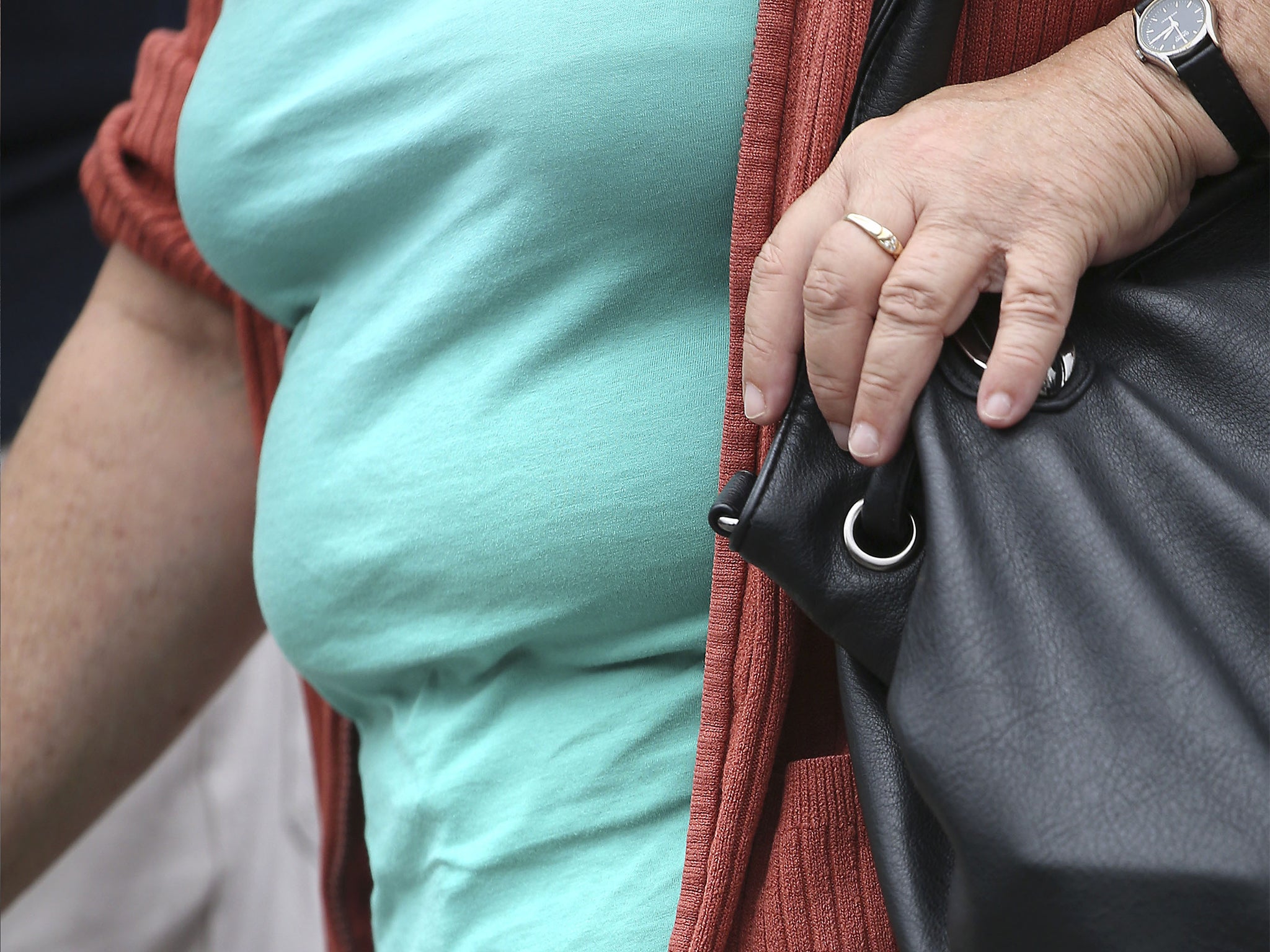Further evidence that obesity in middle age increases dementia risk
Obesity as young as 30 could have negative effect, study says

Your support helps us to tell the story
From reproductive rights to climate change to Big Tech, The Independent is on the ground when the story is developing. Whether it's investigating the financials of Elon Musk's pro-Trump PAC or producing our latest documentary, 'The A Word', which shines a light on the American women fighting for reproductive rights, we know how important it is to parse out the facts from the messaging.
At such a critical moment in US history, we need reporters on the ground. Your donation allows us to keep sending journalists to speak to both sides of the story.
The Independent is trusted by Americans across the entire political spectrum. And unlike many other quality news outlets, we choose not to lock Americans out of our reporting and analysis with paywalls. We believe quality journalism should be available to everyone, paid for by those who can afford it.
Your support makes all the difference.Scientists have uncovered further evidence that being obese in middle age raises your risk of developing dementia later in life, with the latest study suggesting that people as young as 30 who are obese may be at greater risk.
Exactly how obesity might lead to dementia is unclear, but many studies have now shown a link. Experts have warned that soaring levels of obesity represent a dementia “time-bomb” as the current generation of middle-aged people, who have the highest levels of obesity in history, grow old.
In new findings, Oxford University researchers have found evidence that the earlier in middle age people become obese, the more likely they are to suffer from dementia later. The study, which looked at records from 1999 to 2011 of more than 450,000 people admitted to hospital with obesity, found that those between 30 and 70 years old were all more likely to go on to have dementia than non-obese people of the same age. The study was however limited, as it only followed up patients for 12 years.
Strikingly, the study showed that people admitted to hospital with obesity in their 30s were more than three times more likely to develop dementia. However, there were only 19 people in the study who fit this pattern, so the finding may not be entirely reliable.
Overall, though, there was a clear increased risk of dementia for people who became obese between the ages of 40 and 70. Obese people in their 40s were 70 per cent more likely to develop dementia, those in their 50s were 50 per cent more likely and those in their 60s were 40 per cent more likely, the study, published in the Postgraduate Medical Journal, suggested.
Interestingly, obese people in their 70s appeared to have no increased risk of dementia.
Dr Eric Karran, director of research at Alzheimer’s Research UK, said that obesity could lead to high blood pressure and diabetes, both of which could also influence dementia risk.
“There is an increasing body of evidence that lifestyle factors are linked to dementia risk,” he said. “As well as maintaining a healthy weight, research suggests that keeping blood pressure in check, not smoking and regular exercise throughout life are good ways to keep the brain healthy.”
Dr Clare Walton, research communications manager for the Alzheimer’s Society, said that the growing evidence on bodyweight’s midlife link to dementia meant it was “never too early” to start changing lifestyle to reduce risk.
“We know what is good for your heart, is good for your head,” she said
Join our commenting forum
Join thought-provoking conversations, follow other Independent readers and see their replies
Comments